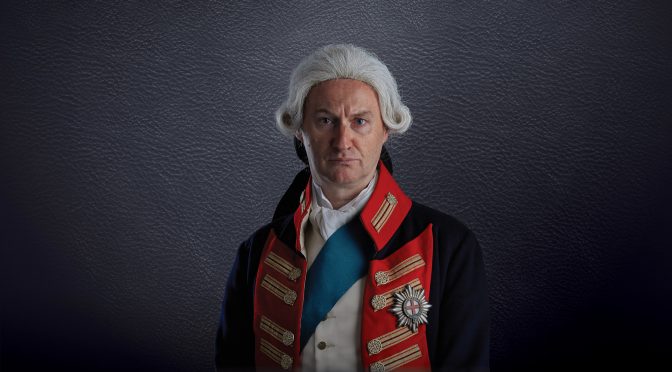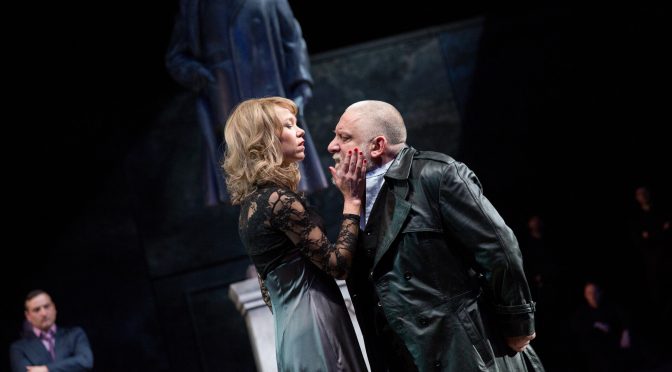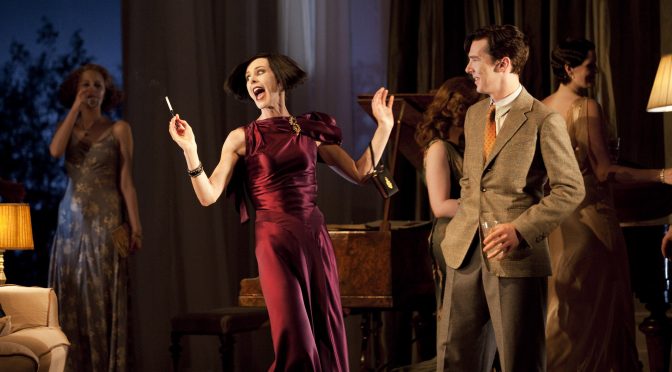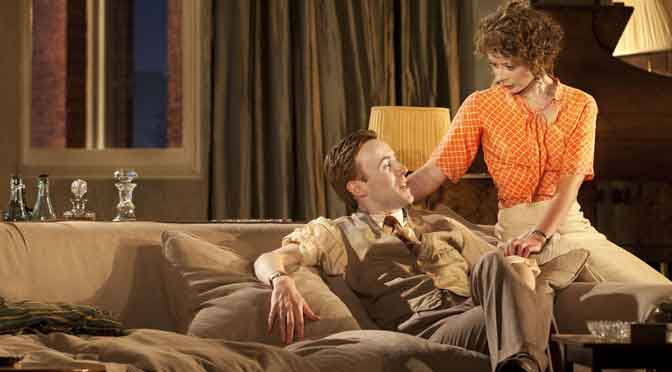Another trip away from the South Bank this week, to the Nottingham Playhouse, means two places to donate to and reminds us of problems facing theatres nationwide during the Covid-19 lockdown. Alan Bennett’s play started at the National Theatre in 1991 and this revival, directed by Adam Penford towards the end of 2018, shows strong work outside the capital.
Penford approaches the piece with a disciplined hand. Although the title role is unquestionably a star part for Mark Gatiss, who does very well, each member of the cast gets a chance to shine. Gatiss has the King’s avuncular nature down to perfection (what a good gossip), and he makes his illness moving. The stuttering, frustrated efforts to communicate – fantastic writing from Bennett – are great.
George’s love match with Queen Charlotte is well conveyed with the help of Debra Gillett (although the off-and-on German accent could be tighter). Best of all is the appearance of Adrian Scarborough as the King’s physician Willis, who adds a good deal of tension. Many a show picks up when Scarborough walks on stage but, unfortunately, that feels especially true here.
Surprisingly, given Gatiss’ background in comedy, the play isn’t as funny as you might hope. There are too many lines wasted: telling the Prince Regent that style never immortalised anyone really should get a laugh. Instead, the play’s keen eye for politics seems to interest Penfold more.
Focusing on the power struggles behind the sick monarch is good news for Nicholas Bishop as “cold fish” Prime Minister Pitt and is, undoubtedly, interesting. But the plotting could be clearer and scenes in Parliament are pretty poor, despite some nice design from Robert Jones. Nonetheless, Bennett does well when he engages with history and Penford is smart to pick this up. If the author’s more romping moments are neglected, the play is clearly still in good shape.
Available until Wednesday 17 June 2020
To support, visit nationaltheatre.org.uk




